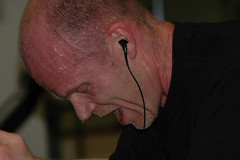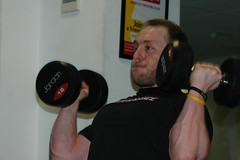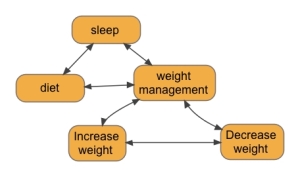Note from Factory Fitness: Gym users often neglect the impact of sleep on their performance, weight loss and muscle building. We have, therefore, asked Chris Idzikowski (Director of the Edinburgh Sleep Centre) to give us the low-down on sleep. Chris is something of a celebrity in the field of sleep and has kindly agreed discuss the relationships between sleep, health, fitness and performance in a series of articles over the next few weeks. Chris’s formal interest in sleep began in Edinburgh where he earned his PhD working with Emeritus Professor Ian Oswald, the UK’s founding father of sleep research. From there he studied anxiety and fear in Cambridge, established the Janssen Research Foundation’s clinical pharmacology sleep laboratory in Oxford, served as Chairman of the British Sleep Society and sat on the Boards of the Sleep Medicine Research Foundation, the European Sleep Research Society and the U.S Sleep Research Society. He has also published countless papers, books and articles on sleep, and has recently recorded a series of podcasts for British Airways. For more information on Chris and his ongoing work, see neuronic.com.
Sleeping for Fitness – Part 1
It was all so simple when I started sleep research in Edinburgh, decades ago. The restorative hypothesis of sleep had been proposed by Prof Oswald:
REM (dreaming) sleep was important for brain restoration, deep sleep for body restoration and light sleep just acted as a cement that bonded the two main stages together.
This proposal partly arose from examining the sleep of patients who had overdosed on barbiturates (the main sleeping pill of that time); their brains showed huge increases in REM sleep, so it was reasoned that if they had poisoned their brains, then their brains were recovering and REM sleep was part of that recovery process. At around the same time a researcher in South Africa found that athletes who participated in a 4 day 92km road race had a big increase in deep sleep on night’s following the race. So, it looked as if deep sleep was important for body recovery processes. Then it all became much more complicated and we are still trying to understand what sleep does, how it affects us, what’s good and what’s bad about it, its relationship with diet and exercise and what we can to optimise our sleep and thus our health.
In the last decade…
The progress in the last decade has been phenomenal. Whilst originally we thought that sleep was rather like putting a ‘nightcap’ over one’s head (a hat not alcohol), the brain quietly settling, we now know that most of the brain remains active during sleep, and only some parts reduce their activity. In fact if one considers the body overall, and compares 7-8 hours rest with 7-8 hours sleep, the energy expended is only around 100 calories less during sleep. The most surprising finding the in past few years has been that there a special receptor cells in they eyes that link directly to control centres in the brain that have nothing to with how we see but which interact with our sleep and wakefulness control centres! We can use these advances to our advantage but it’s a difficult in a single short article to explain how. Luckily Factory Fitness asked for a series to disentangle these issues. So, I’ll be looking at sleep and our 24h mental and physical cycles or rhythms all of which interact and control our weight, muscle efficiency, joint flexibility, skin, focus, thinking, memory, behaviour, mood to mention but some.
But first a quiz:
- Given an opportunity, do you frequently fall asleep?
- Do you usually need an alarm clock to wake you?
- Do you tend to “catch up” on sleep during the weekends?
- Once awake, do you feel tired most mornings?
- Do you frequently take naps during the day?
Also, if you have any burning questions regarding sleep, please feel free to leave them in the comments box and I’ll do my best to give you the answer.







